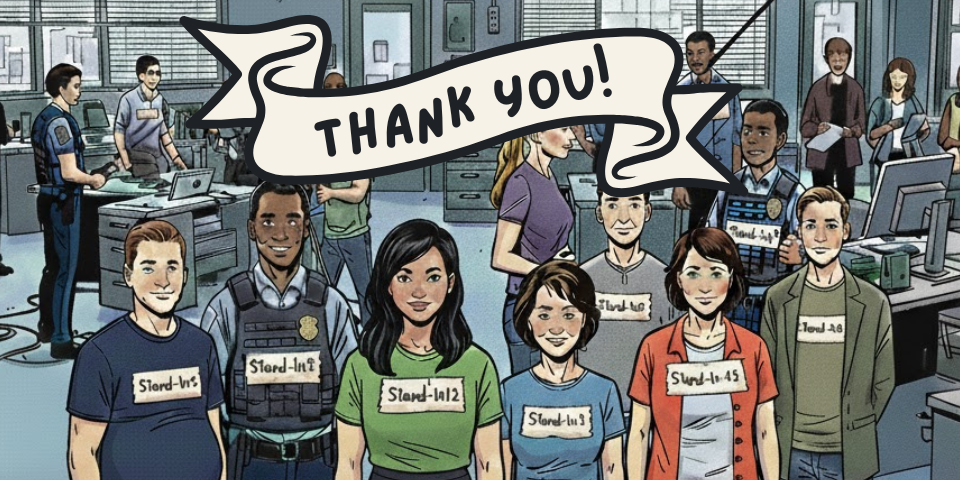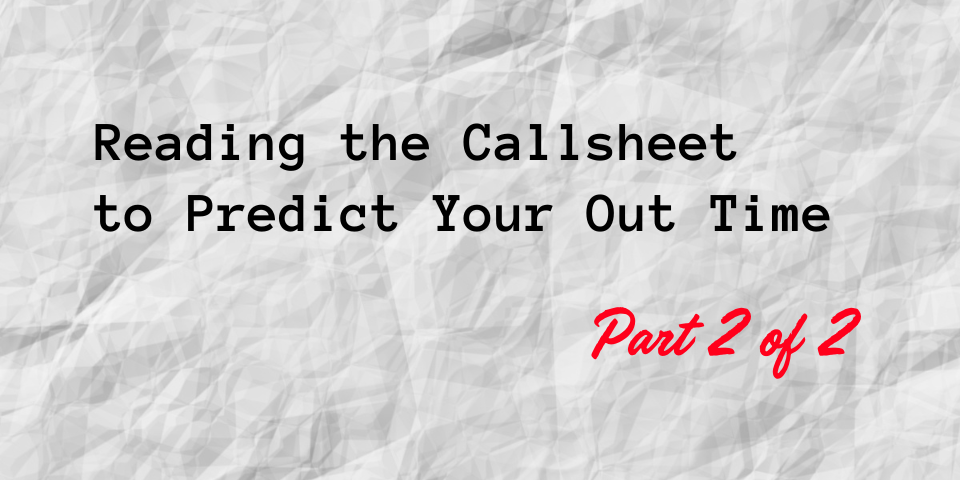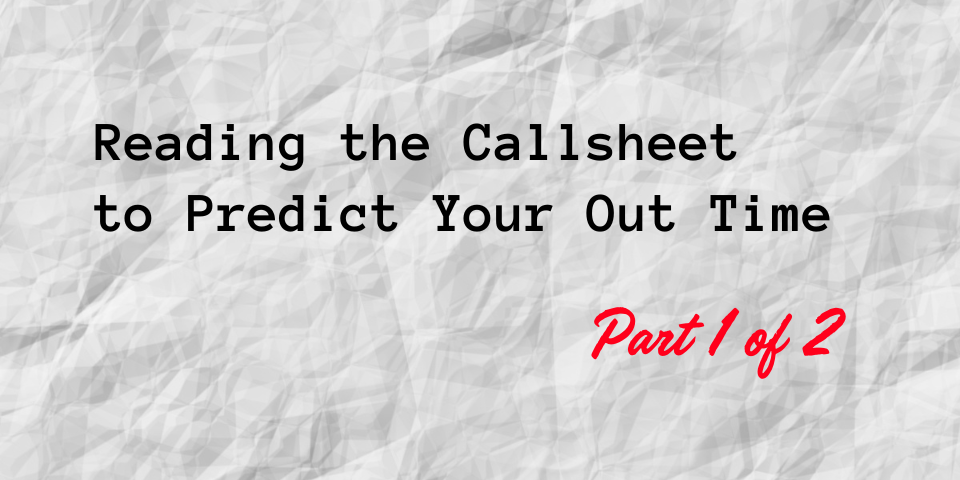Television and film sets are often fairly orderly workplaces, with schedules planned out in advance. From time to time, changes in the schedule occur. Or, from time to time, the rhythms of the set change.
As a stand-in, you may have adjusted to the routine. You may have become comfortable knowing that you step in on set after the marking rehearsal, you leave when you are excused, and you don’t step back on set until you hear “Checking the gate!” and a call for “Second team!”
In practice, though, surprises happen on set, and these surprises interrupt the expected workflow. Suddenly, a prop breaks and ruins the outfit of the principal actor in the shot. The sunlight dims and the DP wants to relight the shot. Camera equipment may break. Actors may not be on set when expected. Stand-ins might not be around when called.
All of these events may have an impact on you as a stand-in and require you to jump in when you least expect it. Learning to ask yourself the question “What does that mean to me?” when you are standing in helps you to anticipate production needs faster than if you simply wait until you are called for.
Asking “What Does That Mean to Me?” Gets You Thinking
The question “What does that mean to me?” essentially means “What are the implications of that event on me as a stand-in?” Asking yourself that question gets your mind positing whether a change or surprise on set has any effect on your work. If you figure out that it does, you can prepare yourself for being needed.
Contrast asking yourself that question with not asking yourself that question. If a change or surprise pops up on set, and if you don’t ask “What does that mean to me?,” you may be surprised, even unprepared, when production calls for you at a point when you do not expect it.
Even worse, not asking yourself “What does that mean to me?” may lead you to leave set to, say, go to the restroom or visit craft services at a critical time. In other words, by not asking yourself that question when a surprise event happens on set, you may leave set or make poor judgments about your need as a stand-in at a very bad time in the production day.
Get in the Habit of Considering Implications
When you get in the habit of considering the implications of each and every production event on your work as a stand-in, you:
- anticipate production calling for you and can be available before they even call for you
- prepare yourself for a sudden need for your stand-in work
- start to see how important your job as a stand-in can be at times
- build your reputation as a trustworthy stand-in
- build your reputation as a knowledgeable stand-in
- save production money, time, and energy in anticipating being needed as opposed to being called for and sought out.
Conclusion
Productions solve problems as they come up, and sometimes stand-ins figure in to those solutions. Keeping your mind focused on the implications of every event on set — asking yourself the question of “What does that mean to me?” — will help you develop your reputation on set and play a critical role in on-set problem-solving.
What do you do when a surprise happens on set? How do you prepare yourself for being used? Share your experiences below!






This is a really great article! I think a lot of stand-ins do this automatically without really thinking about it, but this article made me recognize it and realize how helpful the behavior is! Doing this actually helps me control my stress levels on set. At work, I tend to get stressed about situations that I see other people are stressed about. The situation may affect me but, sometimes it’s something I can’t change. So I have to analyze the situation and separate myself from it if it’s something that I can’t help solve in a direct way. And that can help my stress level go down. Thank you so much for this!